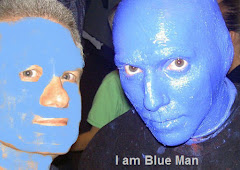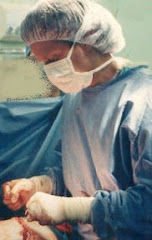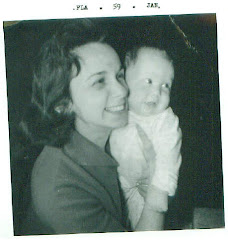I believe in lifelong learning and the application of learning strategies to better learning. I am a life-long student both in formal programs (like medical school) and in life. Frankly, to be a competent practitioner long term you have to be a life-long learner....there is no escape from that fact in medicine.
My primary interest and focus in my doctor of education program was learning styles. It was to be the final piece of my EdD degree (thesis), to investigate learning styles in the students I taught. No need for detail, but suffice to say that the concept of how people learn, and conversely how they don't learn, has been a fascination for me since becoming a clinician and a professor. Now that I'm a student again, the theme is more important than ever, at least to me. Medical education is an egocentric experience :)
I am sorry to say that most medical schools, and particularly mine, are at this stage (the didactic, basic science years) a collection of mostly one dimensional, lecturer transmitted informational events. Other modes of learning come intermittently in labs, and increase more in the last terms of the science years and more in the clinical years. As a multimode VARK student type, this part of the education is the most painful. It is the part of school that many scholars before me have loathed and written extensively about. But I can create my own experiences outside of the classroom with enough time and effort.
VARK: visual, auditory, read/write, and kinesthetic
I am all of these...a multimodal learner. I would suspect that a majority of my classmates are as well. If you look at the general population, 60% of any population are multimodal in their learning styles. The great value that I've seen from having multiple preferences is that, for the most part, I can have choices of the VARK modes for interaction in learning. I may have to suffer through a really bad lecture, but I have my laptop open, can search other sources of visual or auditory information, and generally "metadata" my way thru most any topic. Multimodals find other students to discuss topics, diagrams, physical plastic models, recordings, video, online tutorials and other "things" to entertain the other modes. Just tell me what the goals of learning are and I can figure out how to VARK there.
A word about goals...they must be intrinsically tied into the manner and construction of assessment. If the goal is to build the perfect bridge, a multiple choice exam on perfect bridge building is NOT appropriate assessment. Where to goals come from? The work...what will you have this student actually doing? Work/job >> Goals of learning >> Assessment. It's the core of instructional design and creating appropriate educational experiences. We are not very good at this.
I can be a most impressive VARK student. My activities, in combination with those of the professor, can equal a great educational experience...mostly. But the failure of most educational systems is in the assessment not in the delivery or student activities. How do we assess learning, retention, and usability of the knowledge imparted? The underlying point of education is to facilitate habits of life-long learning, improved medical care and better patient outcomes. Do multiple choices tests, where the question constructor may or may not have a bug up his proverbial rectal vault to trick or distract the tester from actually proving his/her learning work to facilitate the intent of learning? How can we best improve the way medical education is delivered, retained and valued? BTW, trying to figure out the inner workings of the teacher's perspective of a topic is not education or learning. That is called mind reading and considered voodoo in most medical circles.
Somewhere in the VARK world is a cost efficient methodology for assessing learning. This was my goal prior to becoming a student again. I am certain that the hoops created by the standard medical education model are not the answer, but they are for better or worse what we have to work with and survive. I can only hope that the next round will prove worthy. But, I'm not hopeful. It is up to me to find the multimodal pathway to learning, retention and application. I get that.
Rule #234 of education: Cramming as much lecture as you can into a 2 hr block of instruction is not education. But VARK-teaching takes effort, intention, talent and planning. Who has that kind of time? Dr. Stead was so "right" about medical education.






